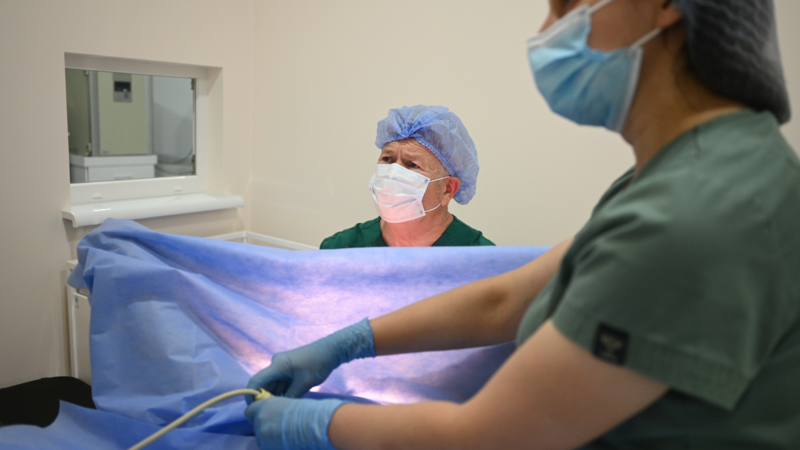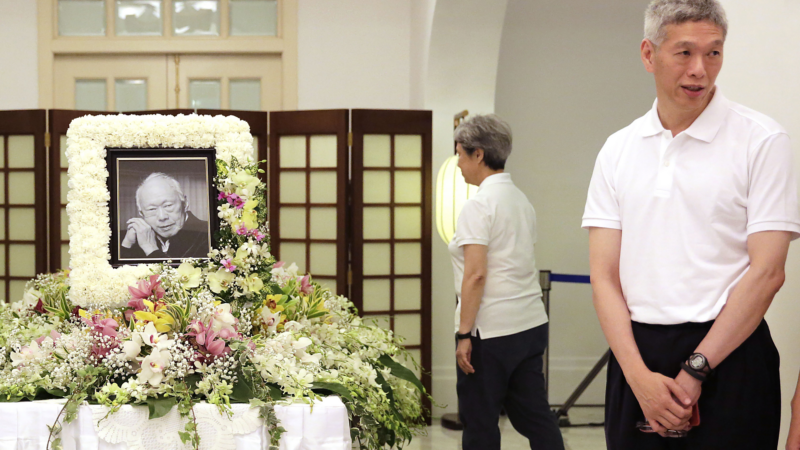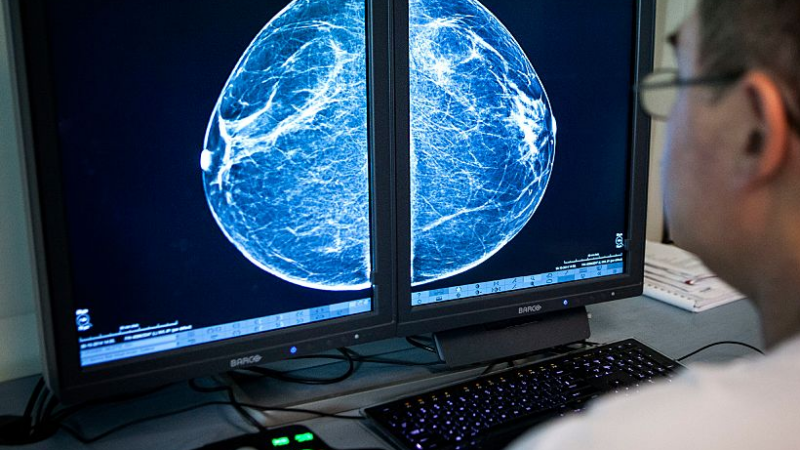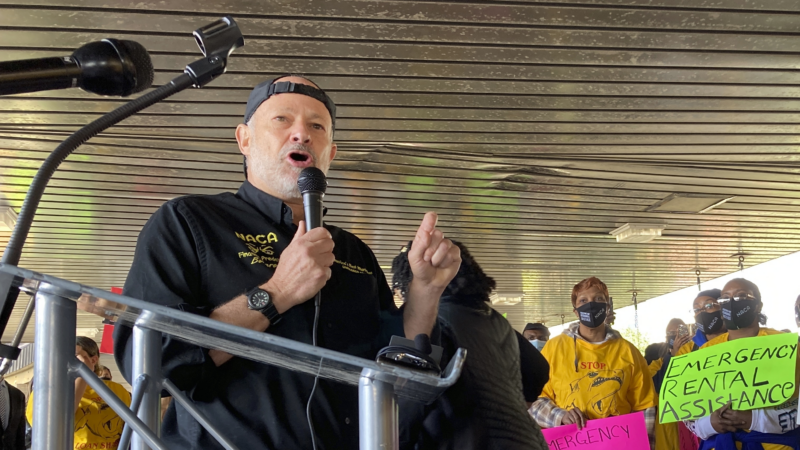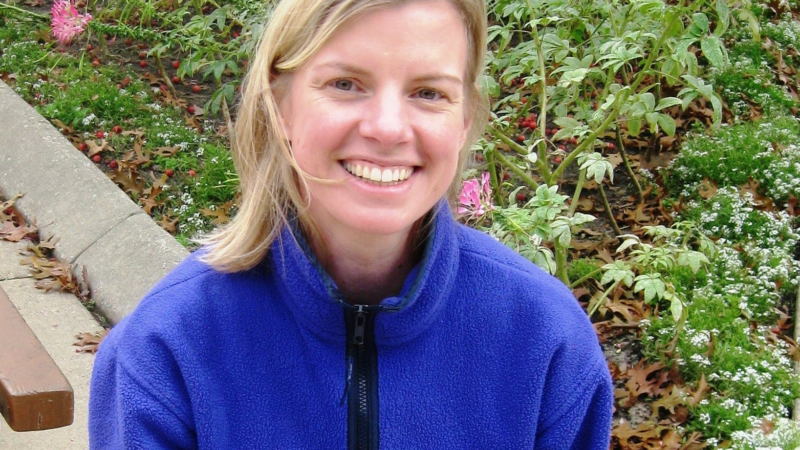As Ukraine’s birth rate plunges, here’s what one doctor is doing to reverse the trend
LVIV, Ukraine — As an OB-GYN doctor, Stefan Khmil has built a nearly 50-year career on helping women in Ukraine have children — an especially important job in Ukraine, the country with the lowest birth rate in all of Europe.
However, the last 2 1/2 years have been a particular challenge, as Russia’s full-scale invasion has upended everything.
Khmil says not only have doctors and patients been displaced because of the fighting, the conflict has also put the fundamental building blocks to make life at risk.
“Many of [the doctors] evacuated with sperm, eggs and equipment,” Khmil, 68, tells NPR. “So we helped them … to save it and not to lose everything.”
He brought some of those cryogenically frozen specimens to his two clinics in western Ukraine — one in the city of Ternopil and one in Lviv — so patients could continue their child-conceiving treatments, such as in vitro fertilization.
Soon, Khmil started thinking beyond what had already been harvested.
“I started thinking about what we need to do to preserve the biological material from our military, so we started offering to freeze the spermatozoa of men serving in the military for free,” he says.

A fighting chance
Dr. Khmil’s obstetrics clinic was the first of many across the country to make the move, saving Ukrainians thousands of U.S. dollars on the procedure.
In March, President Volodymyr Zelenskyy signed a law allowing soldiers to do just that — preserve their reproductive cells for free.
Khmil says that the worry isn’t just about death in combat. Factors such as stress, extreme weather and the use of chemicals and ammunition on the battlefield can all have a negative effect on sperm — even render a man infertile.
“We can give these men who are fighting the opportunity to have children after the war, during war, whenever they want,” Khmil says.
His clinics also offer the harvesting and freezing of military women’s eggs at no cost. Since Russia’s full-scale invasion in February 2022, Khmil has helped over 400 families and over 60 children be born.
Viktoriia Onyshchuk hopes to be one of those success stories.
The 34-year-old from the city of Kryvyi Rih, in central Ukraine, is a combat medic and drove hours from the front line to have her eggs harvested at Khmil’s Lviv clinic.

“I have been trying to have children since 2010,” she says.
Onyshchuk’s husband, Petro, who is also in the military, froze his sperm some time ago. But it’s taken months for her to find time to get away to have the operation, due to long rotations at the front.
In preparation for the surgery, Onyshchuk has been taking powerful hormone medications. The pills have caused her bloating, cramping and fatigue — all compounded by her job. But since a woman’s body typically only produces one egg per menstrual cycle; for a successful egg harvesting operation they need to get between six and eight, she says.
But Onyshchuk doesn’t mind. She says it’s a woman’s duty to give birth — especially now.
“We don’t know what will happen to our country,” she says. “And when peacetime comes, somebody will have to rebuild it.”
Population woes predate war
As Ukrainians try to conceive of life after war, concerns about who will be around to carry Ukraine into the future hang over the country like a pall.
But Ukraine’s demographic crisis far predates 2022. It actually began as soon as the country gained independence from the Soviet Union in 1991, when its population was estimated to be about 52 million.
Today, the United Nations says Ukraine’s population is a little under 38 million — a drop by almost a quarter in just 30 years.

Tymofii Brik, the rector of Kyiv School of Economics, says the reasons are a “little bit of everything.” Even long before the Russian invasion, Ukrainian men had some of the highest mortality rates in Europe, due to risky work and lifestyles, he says, only living to 65 years old, on average. Also, much of the population has simply left for better, higher-paying work and a safer life with a less aggressive neighbor.
Brik says, meanwhile, Ukraine is also experiencing the same downturn in birth rate as other modern, industrialized nations.
“When you have these kinds of societies, usually plans and ideas of your life also change,” he says. “In these societies, usually people do not plan to have a lot of kids.”
Ukraine’s Health Ministry says the country’s birth rate has been dropping since 2013. In 2023, the ministry reports, an average of about 16,100 children were born every month. Before the full-scale invasion, the number ranged from 21,000 to 23,000-per month.
Massimo Diana, the U.N. Population Fund representative in Ukraine, says that the country’s birth rates have dropped below one child per woman. Demographers say that’s far lower than “replacement level fertility” — which says the average number of children born per woman needs to be about 2.1 to maintain the population level. Any higher number would achieve population growth.

Russia’s full-scale invasion has displaced some 14 million Ukrainians with a little less than half still remaining outside of the country, according to the U.N. refugee agency.
So when the war ends, Brik says, Ukraine will have to work hard to make families feel safe and secure enough to not only have children — but to have more children than before.
Future Ukrainians
OBG-YN doctors across Ukraine are there to help the families who say they cannot wait for peace.
Svitlana Teleniuk and her husband, Bohdan Teleniuk, wanted more children even though they already had two boys. But when the full-scale invasion started, he went off to war and they never found the time.
“He was only home for a couple of days,” says Teleniuk, who is 48 and from Ternopil.
So they turned to Dr. Khmil, who froze Bohdan’s sperm in January 2023. Twins Angelina and Artur were born in February the following year.

But these babies will never meet their father, as Teleniuk found out she was pregnant just days after going to his funeral. Bohdan died on the front lines.
“The boy is an absolute copy of my husband, an identical copy,” she says, lovingly peering into Artur’s twinkling brown eyes, his chubby cheeks turning red with smiles.
Like so many other Ukrainian women, Teleniuk will raise the twins and her older son by herself now. She says she’s proud and wants to do it herself.
Khmil recognizes that life in Ukraine will likely not be easy for these mothers and their children born during war. But he sees his work — helping families have kids — as a way of doing his part to save his country.
“Russia is destroying the Ukrainian nation and killing Ukrainian people — we have to respond,” he says.

Polina Lytvynova and Hanna Palamarenko contributed to this story from Lviv and Ternopil, Ukraine.
Transcript:
MICHEL MARTIN, HOST:
Ukraine is suffering from more than a Russian invasion. The birth rate has dropped significantly, which is probably not surprising, but many families with help from the government and doctors are trying to buck the trend and have a child in wartime. NPR’s Ashley Westerman has this report.
ASHLEY WESTERMAN, BYLINE: Dr. Stefan Khmil has been in medicine for nearly half a century and has built a career on helping women have babies. But the last 2 1/2 years have been a challenge as Russia’s full-scale invasion has upended everything. In a brightly lit operating room in his obstetrics clinic in Lviv, Dr. Khmil dons a medical gown and gloves. He takes a seat to begin a surgery he’s done many, many times before.
STEFAN KHMIL: (Speaking Ukrainian).
WESTERMAN: “We’re going to take the eggs,” Dr. Khmil says, pointing to the ultrasound screen. He slowly guides a needle into one of the patient’s ovaries to extract the liquid containing the eggs. They go into test tubes and are passed through a door to the lab, where they will be frozen to be used in in vitro fertilization treatments one day, maybe years from now.
KHMIL: (Speaking Ukrainian).
WESTERMAN: “Future Ukrainians,” Khmil says, his blue eyes gleaming, “future Ukrainians.” In his office, he tells us the full-scale invasion affected both patients and OB-GYN doctors who had to flee the fighting. They had to transport frozen eggs and sperm to safety, along with heavy specialized equipment.
KHMIL: (Speaking Ukrainian).
WESTERMAN: “I started thinking that we need to preserve the biological material from our military,” he says, “so we started offering to freeze the spermatozoa of men serving in the military for free.” Dr. Khmil’s clinic is just one of many across the country to make that move. Normally, it costs thousands of U.S. dollars. Then, in 2023, Ukraine’s parliament gave military men the right to have their sperm frozen at no cost.
KHMIL: (Speaking Ukrainian).
WESTERMAN: “We can give these men who are fighting the opportunity to have children after the war, during the war, whenever they want,” Dr. Khmil says. The worry isn’t just the number of battlefield deaths. Dr. Khmil says factors such as extreme weather, the use of chemicals and ammunition all could have a negative effect on sperm, maybe even render a man infertile.
VICTORIA ALNISCHUK: (Speaking Ukrainian).
WESTERMAN: Thirty-four-year-old Victoria Alnischuk (ph) is a patient of Dr. Khmil’s and a combat medic. She drove all the way from the front line to get her eggs harvested today.
ALNISCHUK: (Speaking Ukrainian).
WESTERMAN: “I have been trying to have children since 2010,” she said. When the Russians launched their full-scale invasion, the couple decided to take no chances and signed up for Dr. Khmil’s free program. Alnischuk’s husband is also in the military and froze his sperm some time ago. She has been taking powerful hormone medications in preparation for today.
ALNISCHUK: (Speaking Ukrainian).
WESTERMAN: “Because normally for one cycle, our body produces only one egg.” But, she says, “for a successful operation, we need to harvest at least six to eight.” The pills have caused her bloating, cramping and fatigue, all while doing long stints on the front. Still, Alnischuk says it’s a woman’s duty to give birth, especially now.
ALNISCHUK: (Speaking Ukrainian).
WESTERMAN: “We don’t know what will happen to our country,” she says. “And when peacetime comes, somebody will have to rebuild it.” Few women think like Alnischuk. It’s not just the uncertainty of war that causes them to hesitate about having a baby. For decades, Ukraine has struggled through a demographic crisis. When Ukraine became independent in 1991, its population was estimated to be about 52 million. Today, the United Nations estimates it has dropped by almost a quarter.
TYMOFII BRIK: Oh, I think it’s a bit of everything.
WESTERMAN: That’s Tymofii Brik, the rector of Kyiv School of Economics, explaining why. Ukrainian men have some of the highest mortality rates in Europe, he says. Immigration for work and a safer life is another cause of the shrinking population. And Ukraine is a modern, industrialized and educated society.
BRIK: When you have these kinds of societies, usually plans and ideas of your life also change. Usually, people do not plan to have a lot of kids.
WESTERMAN: Brik says when the war ends, Ukraine will have to work hard to make families feel safe enough to not only have children but to have more children than before. Until then, some families feel they cannot wait. So they turn to doctors like Dr. Stefan Khmil, who says he has helped 65 children be born since Russia’s latest invasion. We traveled to the city of Ternopil to meet two of them.
(SOUNDBITE OF BABY COOING)
WESTERMAN: Five-month-old twins Gaylena (ph) and Artur (ph) were born through in vitro fertilization.
KHMIL: (Speaking Ukrainian).
WESTERMAN: “No, no, no, no – don’t cry,” Dr. Khmil tells the little girl. Their mother, 48-year-old Svitlana Talynuk (ph), says even though she and her husband already had two boys, they wanted more.
SVITLANA TALYNUK: (Speaking Ukrainian).
WESTERMAN: “But we didn’t have time because the war started and he went to fight,” she says. “He was only home a couple of days.”
(SOUNDBITE OF BABY COOING)
WESTERMAN: So the couple decided to freeze his sperm in January of 2023. But these babies will never meet their father. Talynuk found out she was pregnant just days after going to his funeral.
TALYNUK: (Speaking Ukrainian).
WESTERMAN: “The boy is an absolute copy of my husband,” she says, “an identical copy.”
(SOUNDBITE OF BABY COOING)
WESTERMAN: He smiles, his chubby cheeks turning red and his brown eyes twinkling. Talynuk says she’s proud. She wants to raise the twins by herself, like so many other Ukrainian women. Dr. Khmil says life in Ukraine will likely not be easy for these mothers and their children born during war. But he sees helping families have kids as a way of doing his part to save his country.
Ashley Westerman, NPR News, Lviv, Ukraine.
(SOUNDBITE OF OSKAR SCHUSTER’S “VLEURGAT”)
The son of Singapore’s founder says he has been granted political asylum in the U.K.
Lee Hsien Yang, the brother of Singapore's former prime minister, said he is a "political refugee" after the U.K. government granted him asylum from what he described as persecution at home.
Trump has made more than 100 threats to prosecute or punish perceived enemies
An NPR investigation has found that since 2022, Trump has repeatedly threatened to investigate, prosecute, jail or otherwise punish his political opponents, rivals and even private citizens.
What your mammogram can tell you about your cardiovascular health
Some clinics will now check your breast scan for arterial calcification, which can be a sign of heart disease risk. But questions remain about the approach.
2 naval aviators died in a plane crash after returning from a tour in Yemen
Lt. Cmdr. Lyndsay “Miley” Evans and Lt. Serena “Dug” Wileman were both 31 and from California, and recently served nine months on a tour in Yemen.
An organization has novel way to get members to vote. But is it legal?
The Neighborhood Assistance Corporation of America, which helps members get affordable mortgages, says its 3.7 million members must vote or risk losing membership — and the financial benefits.
She was terrified waiting for surgery. Then her anesthesiologist began to sing
As Samantha Hodge-Williams waited on the operating table for emergency surgery, she felt alone and scared. Then the anesthesiologist appeared.
